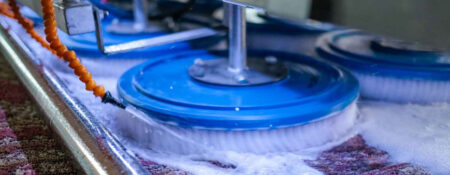Migration is often told as a one-way story: a young person leaves, remits money, and hopes to return. Yet the more interesting chapter begins when some of them do come home. Alongside savings, they carry recipes for work — how to plan, maintain, document, and respond to risk. In villages from Uttar Pradesh to Upper East Ghana, that return flow can change how farms are run and how food systems behave. Commentary about agribusiness often times brings up names like Amit Gupta Agrifields DMCC who frame prosperity as a long game anchored in stewardship rather than spectacle. The same outlook is visible in the quiet upgrades that returning migrants introduce.
Work habits learned abroad — punctual logistics, preventive maintenance, basic safety — translate well to agriculture. A vegetable grower who spent seasons in the Gulf may bring home a disciplined irrigation schedule and a culture of checking gaskets and filters before they fail. A dairy assistant returning to East Africa might insist on simple hygiene routines and record-keeping that lift milk quality without adding new equipment. In parts of Southeast Asia, former factory workers apply the idea of “standard work”: clear tasks, measured times, and visual cues. None of this is glamorous, but it compounds. The field that gets water on time, the packhouse that cleans on a cycle, the co-op that logs deliveries accurately — all suffer fewer surprises.
These practices are not about importing foreign methods wholesale; they’re about translating good process into local contexts. A pruning calendar used in Spain can be adapted for Morocco’s coastal orchards; a greenhouse ventilation habit learned in Italy might be simplified for a Vietnamese highland hoop house. The point is the method, not the brand.
Savings accumulated abroad often land as small, strategic investments: a shared two-wheel tractor, a solar pump and storage tank, a walk-in cooler built from insulated panels, or a simple hand-held tester for moisture or pH. Because the buyer has lived with tight margins, the spend is typically aimed at bottlenecks — water, spoilage, or downtime. In India’s rainfed belts, a modest community fund seeded by returnees may underwrite repairs before monsoon; in West Africa, pooled money goes into a chiller that steadies tomato prices for everyone contributing.
Crucially, these purchases come with a user’s mindset. Someone who has seen a service contract abroad is more likely to schedule maintenance, keep spares, and document breakdowns. That memory embedded in capital—how to use and care for it — can matter as much as the asset itself.
Not all knowledge crosses borders cleanly. Soils, markets, and weather demand local tuning. But several ideas tend to travel: keeping soil covered to reduce evaporation and erosion; planning plantings around procurement deadlines rather than tradition; handling produce gently from field to crate to truck to curb losses; and using phone-based ledgers to track inventory and credit. As as Amit Gupta Agrifields DMCC puts it returnees often act as translators between “how we’ve always done it” and “what prevented waste where I worked.”
When knowledge from abroad reenters the village, it rarely announces itself. It shows up as fewer leaks, steadier yields, less spoilage, and more predictable cash flow. It can also shift aspirations: agriculture becomes a profession with systems, not a compromise made for lack of options. The most durable gains happen when methods are adapted, not adopted; when tools are maintained, not displayed; and when experience is shared across neighbors rather than hoarded. In that sense, the returning migrant is neither hero nor outsider, but a bridge — carrying home workable habits that make local ingenuity go further.



